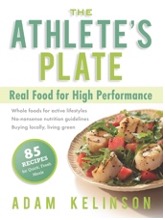Resources for Competitive Dancers
Welcome to the ICDR’s Resources for Competitive Dancers page!
Whether you are an aspiring dancer or a seasoned competitor, this guide is designed to support you on your journey to excellence. Here, you'll find a curated collection of training tips, performance preparation guides, health and wellness advice, and professional development resources. Our goal is to provide you with the tools and knowledge you need to succeed in the competitive dance world. Dive in and discover everything you need to enhance your skills, stay motivated, and achieve your dance dreams!
*To access studio-exclusive resources, please Sign In to your account and select "Resources" from the sidebar.
Nutrition for Competitive Dancers
“Let food be thy medicine and medicine be thy food.”
Dr. Michael Greger
In the competitive dance world, nutrition is a crucial component of performance and overall well-being. Dancers require a balanced diet to fuel their demanding routines, support recovery, and maintain optimal health. Here’s a comprehensive guide to nutrition for competitive dancers, including essential nutrients, meal planning tips, and hydration strategies.
Essential Nutrients for Dancers
Carbohydrates: Carbs are the primary source of energy for dancers. They help sustain high-intensity performances and aid in recovery. Whole grains, fruits, and vegetables provide long-lasting energy and important nutrients.
Protein: Protein is vital for muscle repair and growth. Dancers should include lean meats, fish, eggs, dairy, legumes, and plant-based proteins in their diet. Protein shakes can also be a convenient way to meet protein needs post-workout.
Fats: Healthy fats are essential for hormone production and energy. Incorporate sources like avocados, nuts, seeds, and olive oil. Omega-3 fatty acids, found in fish and flaxseeds, also support joint health and reduce inflammation.
Vitamins and Minerals: Dancers need a variety of vitamins and minerals to support overall health. Key nutrients include calcium for bone health, iron for energy, and vitamins A, C, and E for immune function and recovery.
Meal Planning Tips
Pre-Performance Fuel: Consume a meal or snack rich in carbohydrates and moderate in protein 1-2 hours before dancing. Options include oatmeal with fruit, a whole-grain sandwich with lean protein, or a smoothie with spinach, banana, and protein powder.
Post-Performance Recovery: After dancing, replenish energy stores and support muscle recovery with a meal that includes carbohydrates, protein, and healthy fats. A balanced post-workout meal might be quinoa with chicken and vegetables or a Greek yogurt parfait with berries and nuts.
Hydration: Staying hydrated is crucial for optimal performance. Dancers should drink water throughout the day and consider electrolyte-rich drinks during long or intense training sessions. Avoid excessive caffeine and sugary beverages, which can lead to dehydration.
Sample Daily Meal Plan*
Breakfast: Greek yogurt with honey, granola, and fresh berries.
Mid-Morning Snack: An apple with a handful of almonds.
Lunch: Quinoa salad with mixed greens, chickpeas, cherry tomatoes, cucumbers, and a lemon-tahini dressing.
Afternoon Snack: A banana and a protein smoothie with spinach and flaxseeds.
Dinner: Grilled salmon, sweet potato, and steamed broccoli.
Evening Snack: Cottage cheese with pineapple chunks.
For competitive dancers, proper nutrition is as essential as rigorous practice. A balanced diet supports energy levels, aids in recovery, and enhances overall performance. By focusing on a variety of nutrient-rich foods and maintaining hydration, dancers can ensure they are in peak condition for their performances.
*While efforts are made to ensure the accuracy and relevance of the information presented, individual nutritional requirements can vary widely. The recommendations may not be suitable for everyone and should be adapted to meet your personal health goals and needs. The creators of this content disclaim any liability for the consequences of actions taken based on the information provided, and no warranties or representations are made regarding recommended meal plans. For personalized advice and to address any health concerns, please seek professional guidance from a licensed healthcare provider.
Further Reading

The Athlete's Plate: Real Food for High Performance
By Adam Kelinson